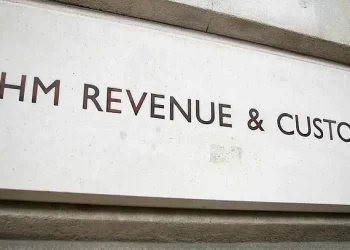As Small Business Saturday approaches, HM Revenue and Customs (HMRC) has launched a series of new initiatives aimed at supporting small businesses in understanding and managing their tax responsibilities.
This move is part of HMRC’s ongoing effort to make the tax system easier, quicker, and simpler for UK entrepreneurs.
Understanding Your Tax Obligations
HMRC has introduced a new interactive online tool and clearer guidance to help sole traders and self-employed individuals navigate the complexities of tax.
The “Set up as a sole trader: step by step guide” is designed to walk users through the process of registering as a sole trader in seven simple steps. This guide is particularly useful for those who may have another job with an employer but also need to set up as self-employed for tax purposes.
Tools and Resources
- VAT Registration Estimator: This newly launched tool helps businesses estimate the impact of VAT registration on their turnover and profits. It was developed based on feedback from small businesses, highlighting the need for an online tool to show when their turnover could require VAT registration.
- HMRC Interactive Tools: These tools are free to use and do not collect or store any user information. They include guidance on registering a business, employing staff, and understanding VAT obligations.
Keeping Accurate Records
Maintaining accurate records is crucial for small businesses. HMRC emphasizes the importance of keeping detailed records of all business transactions, including receipts for expenses.
This not only helps in complying with tax requirements but also aids in managing the financial health of the business.
Tax Obligations at a Glance
Here are some key tax obligations small businesses need to be aware of:
- Income Tax: Sole traders must pay income tax on their business profits once they exceed the personal tax allowance.
- Corporation Tax: Limited companies must register for Corporation Tax within three months of starting and pay tax on their profits.
- VAT: Businesses with a VAT taxable turnover over £90,000 must register for VAT. They can also choose to register voluntarily if their turnover is less than this threshold.
- National Insurance: Self-employed individuals must pay Class 2 and Class 4 National Insurance Contributions based on their earnings.
Current Tax Obligations for Small Businesses
Tax Type |
Description |
Threshold/Rate |
|---|---|---|
| Income Tax | Paid on business profits above personal allowance | £12,570 (2023) |
| Corporation Tax | Paid on company profits | No personal allowance |
| VAT | Charged on sales if turnover exceeds £85,000 | 20% standard rate |
| National Insurance | Class 2 and Class 4 NICs for self-employed | Varies based on earnings |
Commitment to Support
HMRC is committed to building trust with the small business community.
Marc Gill, HMRC Director of Individuals and Small Business Compliance, stated,
“At HMRC, we know small businesses are vital to our economy, and we want to help you get things right from the start. We’ve created user-friendly, anonymised tools that give you the knowledge to make confident business decisions”.
To Summarize
With these new tools and guidance, HMRC aims to continue supporting small businesses in their growth and compliance with tax regulations.
As the UK economy relies heavily on the success of its small businesses, these initiatives are a significant step towards creating a more supportive and efficient tax environment.
Sources: THX News & HM Revenue & Customs.









